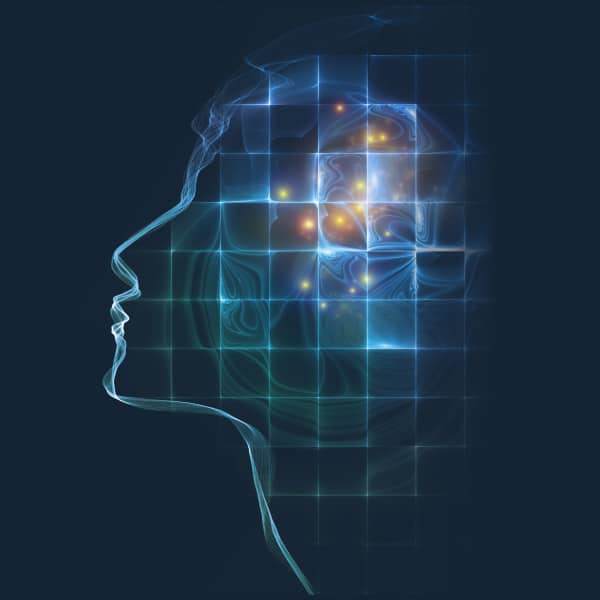Stages of Autonomic Dysfunction
Autonomic Dysfunction
By understanding the symptoms it will all make sense.
What does your Autonomic Nervous System have to do with your everyday health? Just about everything. When the Autonomics work correctly your basic bodily functions are “automatic”. You do not think about them until the moment your brain and body no longer work together like they should.
The Autonomics control every organ in the body such as your heart, bladder, stomach, intestines, and kidneys The Autonomics regulate your blood pressure, blood sugar, sleep cycles, immune system, and hormones. The Autonomics also control many smaller functions like your pupil’s ability to respond to bright sunlight without needing sunglasses or being able to see while driving at night, sweating, and temperature regulation.
Autonomic Dysfunction includes heartburn, headaches, high blood pressure, sleep apnea or insomnia, and cerebral blood flow issues that create ADD, chronic hunger or chronic fatigue. Autonomic Dysfunction also leads to abnormal heart rhythms, frequent urination, unexplained anxiety, dizziness or feeling lightheaded, poor memory, poor focus, and “power surges” when you should be at rest.

Autonomic Dysfunction contributes to obesity due to the false need to snack during the day for “low blood sugar” symptoms, produces abnormal hunger a few hours after having a full meal, or produces stress hormones that contribute to stubborn belly fat.
Early Autonomic Dysfunction in adults includes high blood pressure, sleep apnea or insomnia, and cerebral blood flow issues that leave us with ADD, chronic hunger or chronic fatigue. It is abnormal heart rhythms and frequent urination. It is also unexplained anxiety, dizziness or feeling lightheaded, insomnia or waking up in the night, poor memory, poor focus, and “power surges” when you should be at rest. Autonomic Dysfunction contributes to obesity due to the false need to snack during the day for “low blood sugar” symptoms, or it produces abnormal hunger a few hours after having a full meal.
Today’s young adults and children are also experiencing a great deal of Autonomic Dysfunction. They are increasingly unable to heal from concussions, have gastrointestinal and digestion trouble, and are developing ADD/ADHD, Autism, and anxiety.
When the Autonomics malfunction long enough the resulting metabolic inflammation will turn on disease.
Your symptoms and timelines will begin to make sense once you understand that Autonomic injury and inflammation trigger diseases such as diabetes, cancer, heart failure and Alzheimer’s.
The Nemechek Protocol® medical consultation and treatment services puts these pieces together and treats the underlying cause. The first step is spectral analysis of the Autonomic Nervous System to determine the type and severity of your Autonomic Dysfunction. Spectral analysis allows Dr. Nemechek to detect your pattern of damage, and your test results are a biomarker for your brain’s overall health and ability to correctly run your body.

Stages 1 and 2
There are five stages in Autonomic Dysfunction. The first two stages do not have noticeable symptoms yet these preclinical changes are detected during Autonomic testing. As Autonomic Dysfunction progresses into Stage Three, people become unable to compensate for their autonomic abnormalities and their ability to handle disease and stress becomes impaired.

Stage 3
Autonomic Dysfunction causes people to experience heartburn, headaches, intestinal distress, dizziness, excessive hunger or thirst, anxiety, sexual dysfunction, or poor sleep.
The progression of Autonomic Dysfunction brings the inability to control the blood pressure and heart rates (A-fib, flutter, palpitations, POTS), affects the forward movement of the digestive tract, and proper breathing (sleep apnea). People experience problems with their immune system, hormone levels, and organ function. People no longer bounce back from illnesses or injury and may suffer from chronic fatigue or chronic pain.
As Autonomic function declines and inflammation rises their symptoms may also be mental or emotional in nature. People have a harder time recovering from trauma and may suffer from anxiety, panic attacks, depression, post-partum, and PTSD.

Stage 4
Multiple systems in the body malfunction and people feel increasingly worse. Blood pressure or blood sugars get harder to regulate even with medications, and people have poor responses to other medical therapies. As their heart, immune system and hormone systems malfunction, and as depression or anxiety increase, people turn to a variety of medical specialties searching for answers and diagnoses to explain the avalanche of brain and body dysfunction.
Worsening Autonomic patterns of Sympathetic and/or Parasympathetic weakness at rest, also called Low Heart Rate Variability (low HRV) or Advanced Autonomic Dysfunction, disrupts their daily quality of life. Low HRV leaves them at a higher risk of death from all causes because their body is unable to respond to things like pneumonia, cancer, and infections.

Stage 5
Like Stages 1 and 2, the decline into Stage 5 is detected through Autonomic spectral analysis. As their Autonomics continue to malfunction, Autonomic testing reveals increased Low HRV (Heart Rate Variability). The most advanced Autonomic test patterns of weak Parasympathetic function are Diabetic Autonomic Neuropathy (DAN), and Cardiac Autonomic Neuropathy (CAN) which has a 50% mortality rate within 5 years. The Autonomics are so suppressed that the person has difficulty at times, like when under anesthesia, that increases their risk of sudden cardiac death.
I am fortunate my education and experience allows me to significantly impact peoples’ lives. I invite you to explore this website further to learn if I can help you, too. – Dr. Patrick Nemechek, D.O.
READY TO BOOK AN APPOINTMENT WITH DR. NEMECHEK?
Dr. Nemechek is a classically trained internist who is often able to quickly zero in on the cause of your symptoms though a simple question-answer session – a skill that is missing from modern medicine.
Educational Video Visits let people discuss with Dr. Nemechek about his protocol in detail. Only in-office appointments with Dr. Nemechek allow you to receive the full medical benefit of The Nemechek Protocol® medical consultation and treatment services.

Is Autonomic Dysfunction Affecting Your Health?
Take the Autonomic Health Quiz

